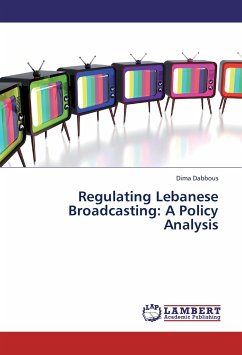Soon after the end of the Civil War, Lebanon witnessed the birth of its first audio-visual law: the Broadcasting Act of 1994. This Act was, according to the new Constitution that ushered in the end of the Civil War, considered to be crucial in ending civil strife in Lebanon. It was also the first law for private broadcasting to be passed in the Arab world. The introduction of the Act created great political upheaval. This study documents the controversy created by the Act and seeks to understand the extent to which vehement criticism of the Act and of the government behind it was justified. In order to do so, various phases of the policymaking process are examined: the inception of the Act as a draft; its final wording and the economic and political forces that shaped it; and its implementation, mainly through the creation of a new regulatory body, the National Audio-visual Council responsible for studying license applications. Finally, by using elite theory and an evolutionary theory of policy analysis, the study attempts to interpret the findings of the primary research, and to add to our understanding of media, law, and policy change in post-civil war Lebanon.
Bitte wählen Sie Ihr Anliegen aus.
Rechnungen
Retourenschein anfordern
Bestellstatus
Storno








